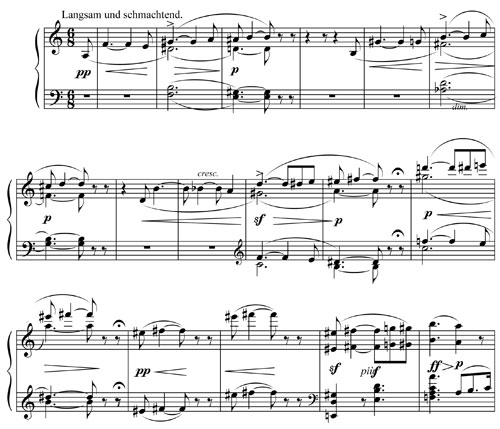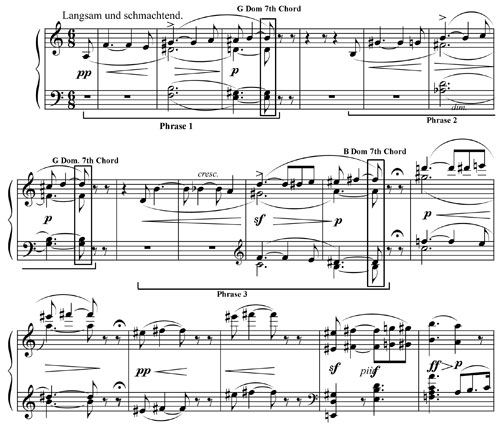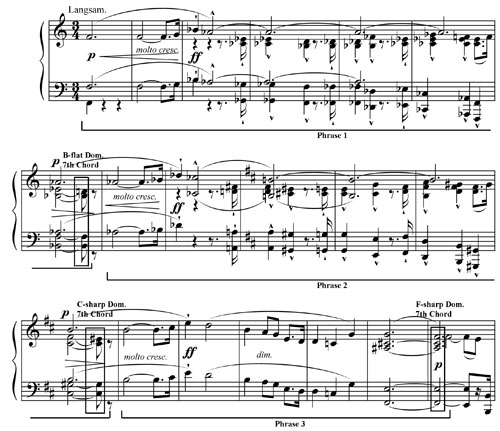







Desire/Death/Honor: Tristan and Isolde
Tristan and Isolde is about desire. It is about “the meaning of desire, its origins, universality, and …its urge to transcendence.” The desire music fits perfectly into both the music theoretical and philosophical ideas of dualism. Musically, the motive exhibits a high degree of symmetry: chromatic scales can be reversed and keep the same intervals, and Tristan chords and dominant seventh chords are inversions of each other. The philosophical side of dualism can be seen in Hegel’s dialectic: thesis and antithesis formed into a synthesis. Wagner’s dialectic of desire is made up of pessimism and yearning for transcendence.
Although Wagner uses the desire music I connection with various dramatic events, all of this music is still related through an overarching unity. Wagner presents the desire motive in three ways during act 1. The first time, during the prelude, it is associated only with the idea of desire.

The second time, in act 1 scene 2, desire is associated with death. Isolde sings, “I, mistaken! I, forsaken! Bright and brave! Knight and knave!” over the desire motive, which serves as an introduction to the first death motive.

The third version of the desire music in act 1 is the one that is associated with honor. Wagner bases these three phrases of honor music directly on the desire music. Wagner knew Gottfried von Strassburg’s story well, and recognized that two different types of honor are present in that narrative. The first is concerned with outward appearances, and is the more traditional view of honor. This “external” honor is important to King Mark, but Tristan uses it also. When he and Isolde spend their first night together, and place the sword in between them to protect Isolde’s honor, it is this external honor that is being guarded. This is also the type of honor that Schopenhauer is referring to when he places it at the polar opposite position to desire. According to Chafe, Schopenhauer called “desire (or will)…one of the deepest principles of existence, whereas honor is just the opposite.”
The second type of honor, “internal,” is much more important to both Gottfried and Wagner. This internal honor, according to Chafe, is “completely indifferent to appearances and incapable of being separated from love,” specifically, sexual love, which of course was the purest kind of love for Wagner. He makes the inextricability of these two elements clear by linking them musically: the honor music and the desire music are very closely related.
Each is based on three phrases which end with a dominant-seventh chord.


Desire becomes even more tangled with both love and death as Tristan drinks the love potion (which he thinks is a poison that will kill him) in act 1. Wagner connects these three ideas in the libretto, and also musically.

